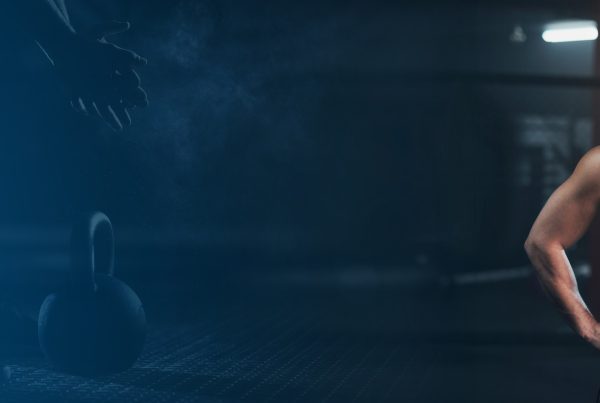The ability to make good business decisions is critical to success, says Dave Christophi. Here, he discusses how to get better at it.
Every business owner must make tough decisions with uncertain outcomes. That is the nature of the job and it is as true today as it was yesteryear, whether you’re a personal trainer, group exercise instructor, sole trader or small- to medium-sized enterprise (SME).
Nevertheless, in the first instance we need to put things into context, so it’s worth noting that there are two big differences between decision making today and decision making 30 years ago: Decisions happen faster and on a larger scale than they did in the past.
Information flows much faster today. Thanks to LinkedIn, Facebook, X, YouTube and other social media platforms, news that took days or weeks to disseminate around the world 30 years ago now requires mere seconds. Moreover, once that information is released, people come to conclusions and react to it way faster than ever before. In addition, the volume of information stored and processed today vastly exceeds anything even imagined 30 years ago. However, that data often comes at a price: inaccuracies, inconsistencies and lots of room for interpretation. Put simply, more data usually leads to more questions.
Data overload leads to bad decision making
The overwhelming amount of data, flowing at faster rates from ever-increasing sources, often leads to poor decision making or indecision. The impact of those decisions is, to a certain extent, relative to business size. Large businesses have more checks and balances, and more resources, than small businesses; however, they also typically have deeper cash reserves, greater access to capital and more inertia. As such, it can be argued that small businesses are far less resilient than larger businesses. A few moderately bad decisions can easily destroy a small business, whereas giant multi-nationals often withstand billion-pound blunders and still bounce back.
Tips to improve your decision-making skills
Given the heightened importance of good decision making, what can entrepreneurs and small business owners do to improve the quality and consistency of their decisions? Here are a few suggestions.
Embrace change
It’s pretty obvious that the world is changing faster than ever before – recent events regarding COVID-19 tell us this. Successful business owners don’t just react to change; they anticipate it. Then they either flow with it or they drive it. Owners who resist change are more likely to fail or, at best, to barely survive. COVID-19 forced businesses within the active leisure sector to adapt quickly to change and, in many cases, redesign their products or services, or even create new ones to respond to the demands of millions of people adjusting their habits around the world. COVID-19 aside, the list of bricks and mortar companies struggling to compete against more agile online competition continues to grow. Nevertheless, while numerous gyms, training providers and fitness professionals have struggled (even failed) to adapt, there are those who have managed to stay relevant, anticipate trends and embrace innovation.
Expect the unexpected
So, no matter how much analysis and planning you do, you cannot predict the future; as stated, COVID-19 has shown us this. Things happen; therefore, your plans should be flexible enough so that you can adapt to the unexpected without throwing everything off course.
Take calculated risks
There is a common misconception that entrepreneurs are ‘big’ risk takers. However, most studies actually show the exact opposite; indeed, successful entrepreneurs generally avoid risk wherever possible. But they do take calculated risks all the time. They develop new products, enter new markets, pull out of existing markets, change their product packaging, form new strategic coalitions, etc. It’s therefore important to note that open risk-taking generally isn’t productive. Instead, successful entrepreneurs tend to take risks in ways that limit their potential loses. They always look before they leap.
Focus on what really matters
Deciding on what matters cannot be a casual decision; it must be thought through carefully and it should align with your company strategy (surely you have a strategic plan? It doesn’t have to be War and Peace but you do need something!). The brand of your ‘must-have’ uniform polo is probably not critical to your company’s survival; however, responding appropriately to your largest customer’s damning review on Facebook probably is.
Listen and learn
Successful owners listen to their team, their customers, their partners and even their competitors. They are good at ‘thinking big’ but they also pay attention to details such as morale, paying invoices on time, customer service, marketing consistency, sales training, etc., all of which builds trust in their business and their brand. No matter how large or small your company is, make sure you are not just gathering data – you also need to analyse and act on it. This should happen at all levels of your business, not just in team meetings and strategic retreats. Furthermore, avoid isolation: don’t fall into the trap of relying exclusively on a few trusted insiders to get your facts. To reiterate the point, talk to customers, vendors, partners, suppliers and even competitors. Force yourself outside of your comfort zone occasionally.
Keep track of what is going on in your industry
You can’t consistently make good decisions if you don’t know the facts. Subscribe to industry news sources, build and follow a sector-specific network such as FitPro, regularly read the business section of one or two reputable newspapers and attend major industry conferences or trade shows.
Act fast
Successful owners make decisions carefully but, once they decide, they act quickly. Businesses that are slow and unmanageable due to the sheer number of managers required to review initiatives will often stifle them, risk them becoming killed outright or take so long to go through the system they will be effectively dead by the time they emerge. In 2003, Lego almost hit bankruptcy because of over innovating. It quickly recalibrated, streamlined its business model by changing the way it managed innovation and discovered it could revitalise and reignite its original products through collaboration with the likes of Harry Potter and Star Wars. It took the time to see where and why it was going wrong, created a measured strategy to fix its problems and then acted fast. Small companies, solo entrepreneurs and sole traders have the ability to act swiftly; it is one of the key advantages they have over large organisations. If your company is small but major ideas and projects take years to bubble up to the surface, then you have a problem.
Be decisive but avoid knee-jerk reactions
This is probably the hardest of all. You don’t want to over-react and make a bad situation worse. But then again, you don’t want to hold back and over-analyse every possible contingency to the point that you’re procrastinating and miss the boat.
Everybody makes mistakes and, no matter how hard you try, you will probably end up doing something over the next year that leaves you scratching your head five years from now. If you think you know everything, you are doomed to fail, so seek out help when you get out of your depth. Likewise, if you don’t have the time or resources to delve into a particular issue, or don’t have the technical skills, or perhaps just want a second opinion, then by all means bring in outside experts to help you.
However, you might be able to limit the damage by following some of the suggestions provided here.
Check out our online business courses from Your Guardian – earn CPD points and boost your business – CLICK HERE!








